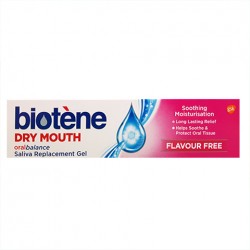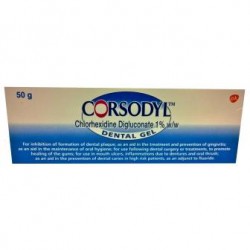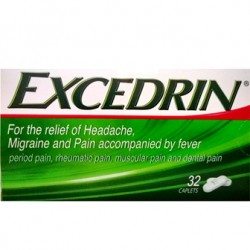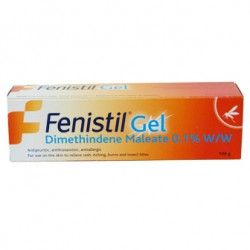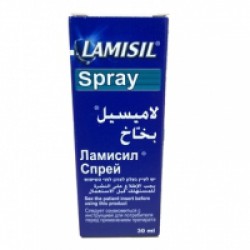Nicotinell lozenges 2 mg
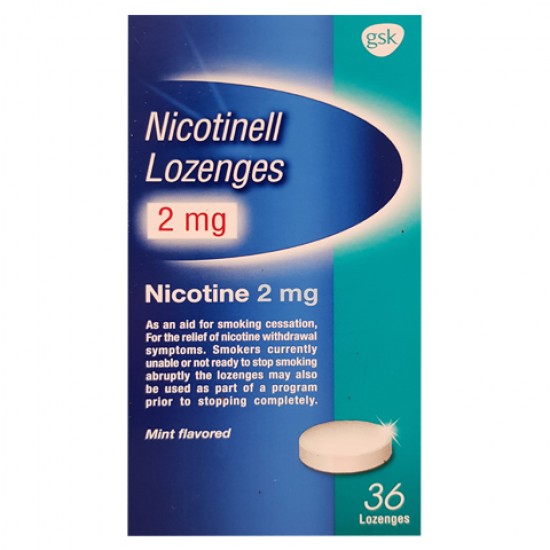
An aid for smoking cessation, for the relief of nicotine withdrawal symptoms.
Active Ingredients
Each lozenge contains:
Nicotine 2 mg
Indications
Therapeutic group:
Medicines used in cases of nicotine dependence.
Nicotinell lozenge contains nicotine, which is one of the components of tobacco.
When sucked, the nicotine is slowly released and absorbed through the lining of the mouth.
Nicotinell lozenges 2 mg are used as an aid to smoking cessation and for the relief of nicotine withdrawal symptoms for adults above the age of 18.
In smokers currently unable or not ready to stop smoking abruptly the lozenges mayalso be used as part of a program to reduce smoking prior to stopping completely.
Instructions
Nicotinell lozenges are available in two dosages: 1 mg and 2 mg.
The dosage suitable for you will depend on your previous smoking habits.
Use Nicotinell lozenges 2 mg if:
- You suffer from a strong or very strong nicotine dependency
- You have previously tried to stop smoking with Nicotinell lozenges 1 mg, but were unsuccessful
- Your withdrawal symptoms remain so strong as to threaten resumption ofsmoking.
Otherwise, use Nicotinell lozenges 1 mg.
Select the optimal dosage for you according to the following table:
|
Low to moderatedependency
|
Moderate to strong dependency
|
Strong to very strongdependency
|
|
Less than 20 cigarettesper day
|
20-30 cigarettes per day
|
Over 30 cigarettesper day
|
|
The preferred product is Nicotinell lozenges 1 mg |
The low dosage (Nicotinell lozenges 1 mg) or high dosage (Nicotinell lozenges 2 mg) maybe used, depending on yourcharacteristics and preferences
|
The preferred product is Nicotinell lozenges 2 mg
|
If you have experienced a side effect with use of the high dosage (2 mg) product,use of the low dosage (1 mg) product should be considered.
Instructions for use (for both dosages):
1.Place one Nicotinell lozenge in your mouth and suck until you feel the taste of thenicotine.
2.When you taste the nicotine, move the lozenge to the side of your mouth, between your gums and inside of your cheek.
3.When the taste of nicotine becomes weaker, suck the lozenge again.
4.Repeat these steps until the lozenge has completely dissolved (approximately 30minutes).
Do not chew the lozenge!
Do not swallow the lozenge whole!
The usual dosage is generally:
Initial dosage:
One lozenge every 1-2 hours, when you feel the urge to smoke. Theusual dosage is 8-12 lozenges a day.Do not use more than 30 Nicotinell lozenges 1 mg per day, or 15 Nicotinell lozenges2 mg per day.
Do not exceed the recommended dose!
Nicotinell lozenges should primarily be used for smoking cessation.
- Use for smoking cessation (complete cessation of smoking):
To improve your chances of giving up smoking completely, you should stop smokingimmediately when you start to use Nicotinell lozenges and avoid smoking for thewhole treatment period.The recommended treatment duration varies from person to person. Normally,treatment should continue for at least 3 months. After 3 months of treatment, youshould gradually reduce the number of lozenges used each day. Treatment should bestopped when you have succeeded in reducing your use to 1-2 lozenges per day.Generally, it is not recommended to use Nicotinell lozenges for more than6months. However, some ex-smokers need a longer duration of treatment to preventreturning to smoking.
If you are using Nicotinell lozenges for more than nine months consult the doctor.
- Use for smoking reduction:
Nicotinell lozenge should be used between periods of smoking in order to prolong smoke-free intervals and with the intention to reduce smoking as muchas possible.The use of cigarettes should be gradually replaced by lozenges. If, after6 weeks of Nicotinell lozenges use, you have not succeeded in reducing the numberof cigarettes you smoke per day to half of your consumption, you should seekprofessional help.
You should try to stop smoking as soon as you feel ready, but not later than 4 monthsafter you started using Nicotinell lozenges. After that, the number of lozenges youare taking should be gradually reduced, for example, by reducing one lozenge fromyour daily quota, every 2-5 days.
If you do not succeed in making a serious attempt to stop smoking within 6 months,you should seek professional help.
In general, it is not recommended to use Nicotinell lozenge regularly for a period thatexceeds 6 months. However, some ex-smokers needa longer duration of treatmentto prevent returning to smoking.
Counseling and guidance during treatment with Nicotinell lozenges may improve your chances of giving up smoking.
Always carry Nicotinell with you, in case you again experience the urge tosmoke.
Remember! One cigarette is sufficient to make you start smoking again.
This medicine is not intended for children below the age of 18.
Sucking too many lozenges can result in the same symptoms as smoking too much.
The general symptoms of nicotine overdose include:
Weakness, sweating, increased production of saliva, throat burn, nausea, vomiting,diarrhea, abdominal pain, disturbance of hearing and vision, headache, fast heartbeator another disturbance in heartbeat, shortness of breath and blood circulatorydisturbances.
Consult with the doctor or pharmacist if you experience any problem.
Nicotinell lozenges ingredients are suitable for diabetics.
Warnings
Do not use Nicotinell lozenges 2 mg if you are sensitive (allergic) to the active ingredient or any of the additionalingredients contained in the medicine.
Do not use this medicine if you do not smoke.
Before treatment with Nicotinell Lozenges 1 mg and 2 mg, tell the doctor if:
- You are pregnant or breast-feeding
- You suffer from a heart disease such as: a heart attack, heart failure, anginapectoris, Prinzmetal's angina or abnormalities in heart rate
- You had a stroke in the past
- You have uncontrolled high blood pressure
- You have blood circulation disorders
- You have diabetes
- You have an overactive thyroid gland
- You have a tumor of the adrenal gland (pheochromocytoma)
- You have a kidney or liver disease
- You have esophagitis, inflammation of the oral cavity or throat, gastritis or peptic ulcer
Even small quantities of nicotine are dangerous for children and may result in severesymptoms or death. Therefore, it is essential that you keep Nicotinell lozenges out of reach and sight of children at all times.
Ifyou are taking, or have recently taken, other medicines, including non-prescriptionmedicines or nutritional supplements, tell the doctor or pharmacist.
If you stop smoking and if you are using other medicines, the doctor may want toadjust the dosage of the medicines you are taking.
No information is available on drug interactions between Nicotinell lozenges and other medicines. However, apart from nicotine, other substances in cigarettes may have an effect on specific medicines.
Stopping smoking can affect the action of certain medicines e.g.:
- Theophyline (a medicine used for the treatment of bronchial asthma)
- Tacrine (a medicine used for the treatment of Alzheimer's disease)
- Olanzapine and clozapine (medicines used for the treatment of schizophrenia)
- Insulin (a medicine used for the treatment of diabetes) - the dosage may need tobe adjusted
Coffee and soft and acidic drinks may decrease the absorption of nicotine and shouldbe avoided for 15 minutes before sucking the lozenge.
It is very important to stop smoking during pregnancy, since smoking can result inslowed growth of your baby. Smoking may even lead to premature birth and even to stillbirths. Ideally, it is preferable that you try to stop smoking without the use of medicines. If you cannot manage stopping in this way, Nicotinell can be used as anaid to cessation, as the risk to the development of the baby as a result of Nicotinelluse is lower than the risk expected from continued smoking. Nicotine in any formmay cause harm to your unborn baby. Nicotinell should only be used after consultingthe medical staff who is monitoring your pregnancy, or with a doctor who specializesin helping smoking cessation.
Nicotinell should be avoided while breast-feeding, just as smoking should be avoided,since nicotine may be found in breast milk. If your doctor has recommended that you use Nicotinell lozenges while breast-feeding, the lozenge should be sucked just after breast-feeding and avoided during the two hours before breast-feeding.
Nicotinell lozenges contain sweeteners, including aspartame and maltitol.
Each lozenge contains aspartame, which isa source of phenylalanine and may be harmful for people suffering from phenylketonuria.
Because Nicotinell lozenges contains maltitol, which is a source of fructose:
Ifyou have been told by your doctor that you have an intolerance to certain sugars,contact your doctor before taking the medicine.
Nicotinell Lozenges contain 9.8 mg sodium per unit.This should be taken into consideration by patients on a controlled sodium diet.
Please do not consider this information as an alternative to consulting your physician or pharmacist.
For further information on instructions for use, risks and side effects, please read the patient package insert and consult your doctor or pharmacist.
Read the patient package insert carefully before starting to take any medication.












